The U.S. Senate Youth Program encourages motivated and high-achieving young leaders to be directly involved in our participatory democracy. Countless delegates leave Washington Week wanting to get a deeper view into the workings of the legislative branch – either by returning to D.C. or working in their senator’s or representative’s state offices. We caught up with a few recent USSYP alumni who interned on Capitol Hill following their Washington Week experiences. Read on to get tips on how to find an internship and what life is like once you do!
Many thanks to:
Ethan Cartwright (MS – 2013), intern for Senator Roger Wicker (R-MS)
Monica Marciano (VA – 2016), intern for Senator Tim Kaine (D-VA)
Maria Mendoza (NJ – 2015), intern for Senator Cory Booker (D-NJ)
Samuel Miller (KY – 2015), intern for Congressman John Yarmuth (D-KY-3rd District)
How did you secure your internship?
Maria: I applied to be an intern in Senator Cory Booker’s New Jersey office for the summer following freshman year. I began the process through his website with an application that included personal information, a writing sample, a brief essay, a copy of my resume, and references. The process wasn’t too arduous, and the senator’s staff was incredibly helpful whenever I called in for a clarification. A few weeks later, I was interviewed by the staff and later notified that I received the internship. A major concern of mine was funding, particularly because my university requires a student contribution for tuition regardless of aid status. I was able to find a stipend opportunity at my university’s Institute of Politics and get the matter sorted before starting my internship. I highly recommend potential public service interns look into similar opportunities at their respective campuses!
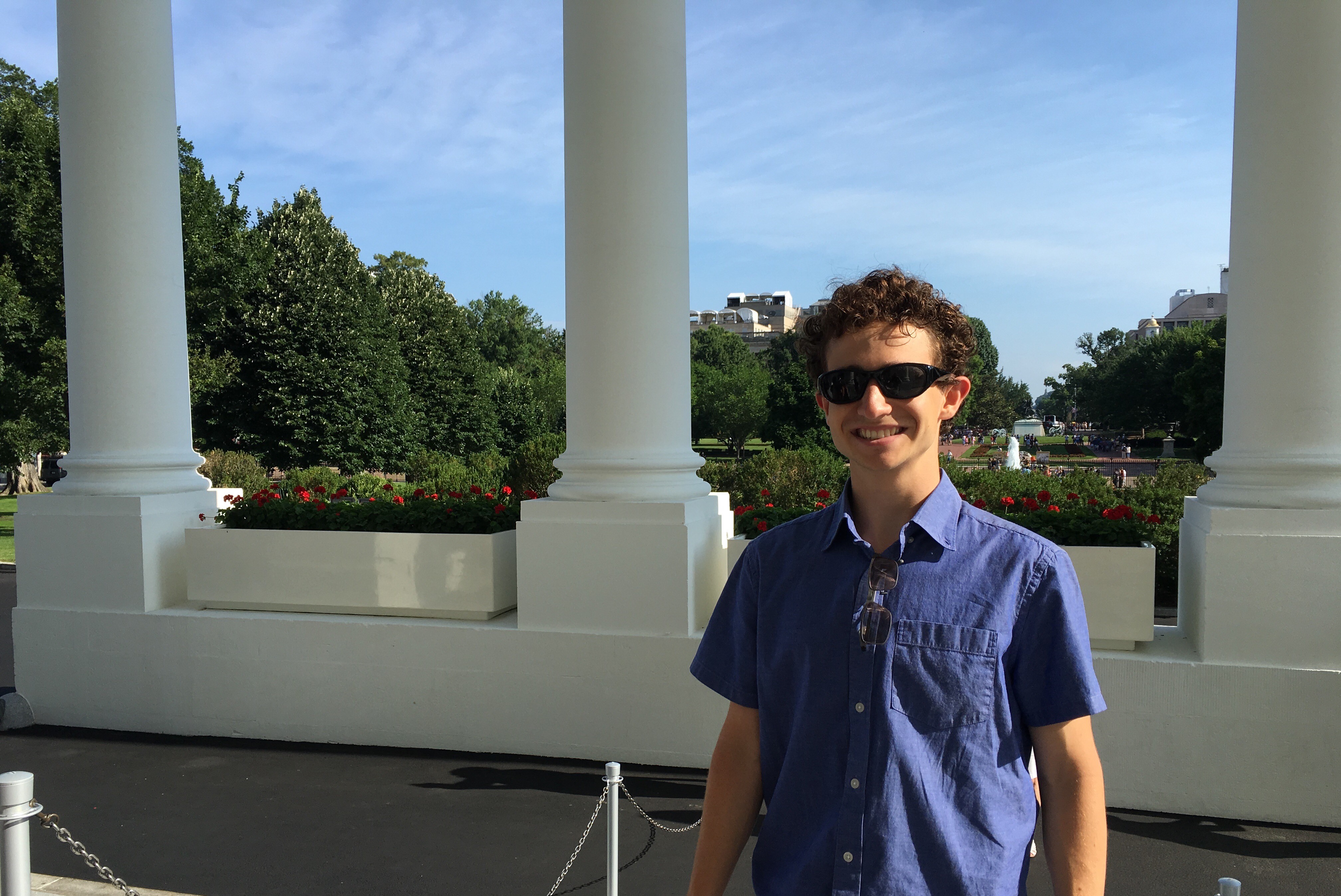
Samuel: I was interested in interning during the summer following my freshman year. The application process involved contacting my Congressman John Yarmuth’s office for the required forms, sending in a resume and cover letter, and conducting a phone interview with the one of the congressman’s staff members. Efforts to reach out are important, but I tried to strike a balance between showing interest and overloading the office with emails. For me, it took four months from first contacting the office in November to receiving a decision in February. Even after I was accepted, I made sure to respond promptly to any inquiries from the office leading up to the start date. For the interview, I tried to predict the questions in advance so that I would be better prepared. During the interview, I highlighted why my district was special to me, my past experience with leadership positions, and why public service motivates me.
What was a typical day like for you?
Ethan: Serving as an intern for Senator Wicker during my spring semester of junior year, I had a wide range of responsibilities. As the intern assigned to the senator’s executive assistant and scheduler, my typical responsibilities consisted of assisting in fielding meeting requests from constituents and lobbyists, arranging the senator’s calendar, booking (and often troubleshooting) his travel and maintaining his records. However, no two days on the job were ever alike. Since the senator’s time is a premium commodity, scheduling staff must always remain flexible and should learn to expect that things will not go according to plan!
Maria: I was based in Senator Booker’s New Jersey office working within the constituency. My responsibilities included three key types of work: (1) organizing the “clips”, or newspaper clips pertaining to the senator’s activities or major policy matters in the state for the staff’s viewing every day, (2) inputting constituent inquiries into the senator’s constituent services database, and (3) writing memos and other types of briefs for key issue areas. Although the clips were just completed first thing in the morning every day, the other tasks would just be given based on when staff members needed assistance. Interns would also have rotating shifts answering calls at the front desk, which I was assigned to twice a week. Additionally, I got to attend multiple events as part of the senator’s office, such as press conferences with the senator on topics such as the Transportation Security Administration and gun control, a Hillary Clinton rally and visits to the New Jersey State House and Joint Base McGuire-Dix-Lakehurst.
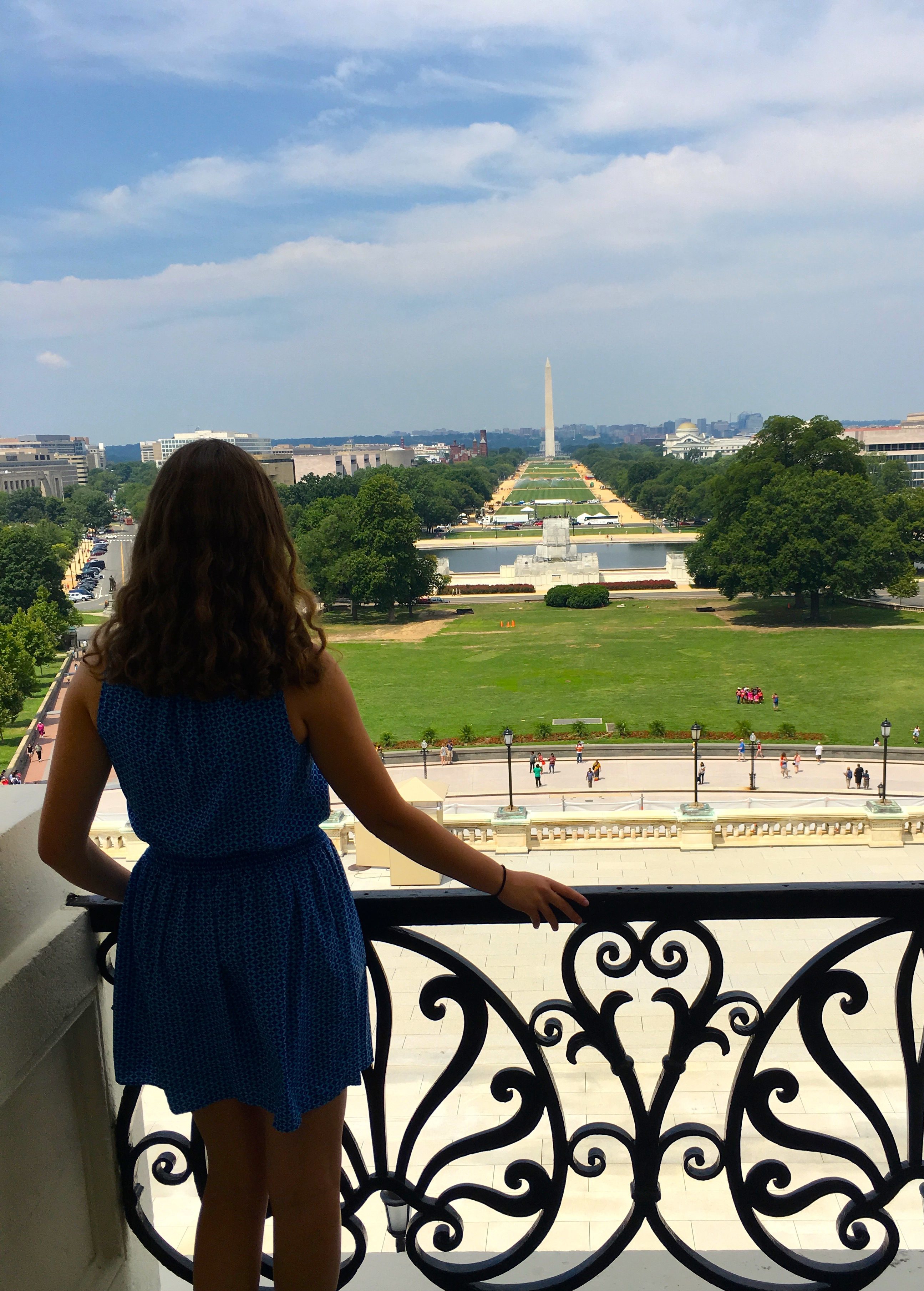
Monica: As a summer intern for Senator Kaine, I attended committee hearings and meetings with constituents, and I assisted staff members with special projects and press clips. In addition, I was responsible for recording voice mails from constituents, giving tours of the Capitol, and delivering correspondence between offices. Occasionally we had the opportunity to have lunch with Senator Kaine, Chief of Staff Mike Henry and other staff members.
Did you have the opportunity to spend much time with the senator? In what capacity?
Ethan: As an intern for the executive assistant, I interacted with Senator Wicker on a daily basis. This often involved providing him advance information before meetings and appearances and even driving him to certain engagements. What surprised me most about Senator Wicker’s office was how interested the senator was in his staff. Senator and Mrs. Wicker took personal interest in the well-being of staffers and interns.
Maria: I definitely spent more time with Senator Booker than I was expecting, particularly because I was interning in my state and not in D.C. However, he kept a strong presence in New Jersey throughout the summer and I spoke to him several times at his events and at the office. The senator is incredibly down-to-earth and makes the effort to get to know his interns. Unfortunately, I was traveling and could not attend, but at the end of the summer, the senator hosted a movie night with all of his summer interns to get to know them better and treat them to a meal. All of my experiences reflected his genuine interest in our success.
What advice would you give to others on how to have a successful experience as an intern?
Maria: I would advise others to act as if every day on the job is another interview, and to bring the same energy and enthusiasm to all assignments. Oftentimes, interns aren’t given the most interesting work. Many don’t think of their ideal job entailing receptionist work or the organization of filing cabinets, but the fact of the matter is that if it has been assigned to you, it will probably make someone else’s day a bit easier, and that person won’t forget it. Once you make that kind of impression, you start being entrusted to do the work that you really want to.
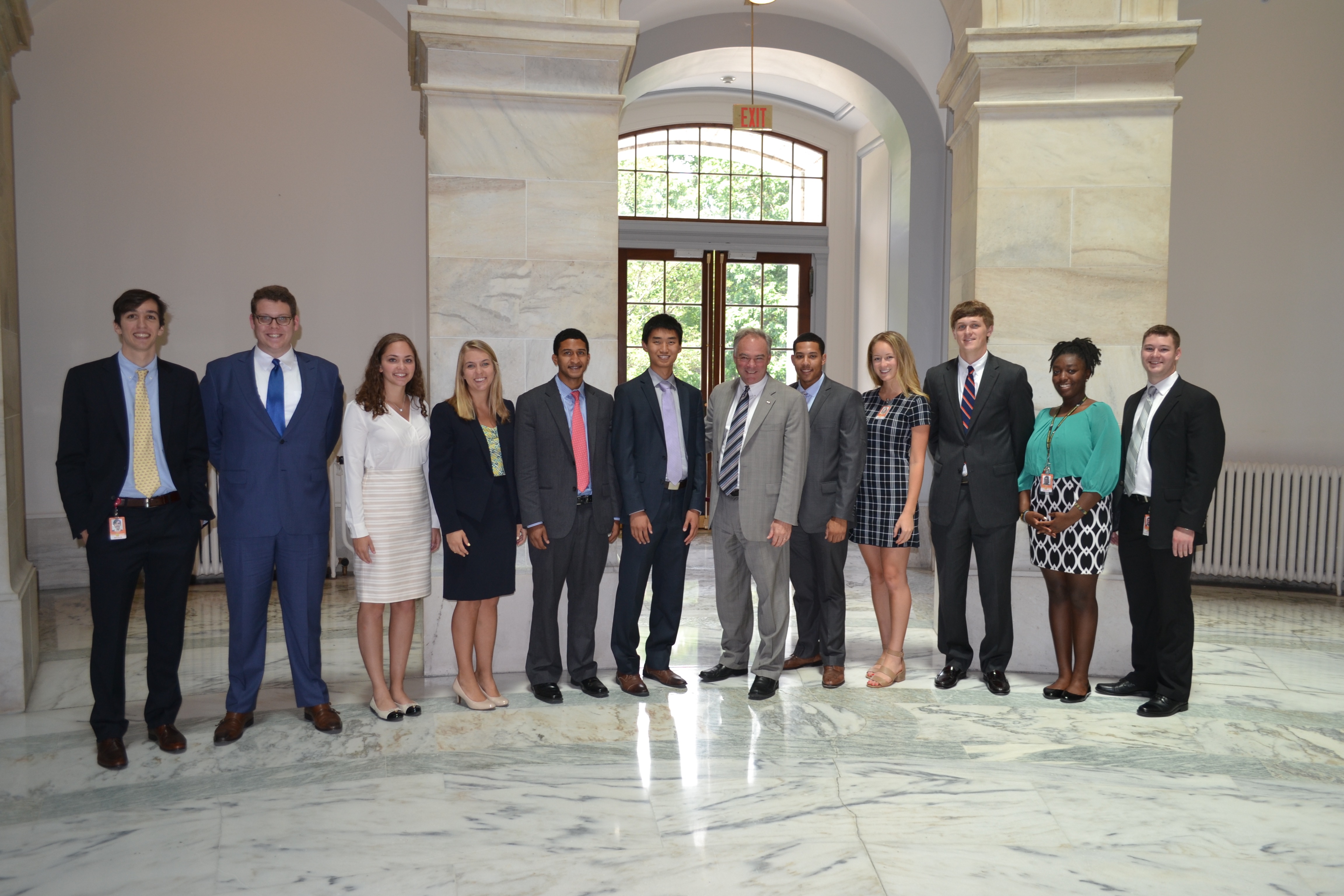
Monica: Take advantage of all the resources that are available to you. When else will you be able to roam the halls of the Capitol, talk to specialists in five different policy areas, and attend a speaker series with politicians all in one day? During the Congressional breaks (when the Senate was in recess), I had the unique opportunity to get lunch with several staff members, who gave me advice on everything from law school to networking. I also made sure to attend as many committee meetings as I possibly could, and I believe that these briefings have given me a deeper understanding of issues Congress is working on, including combatting the Zika virus and the implementation of the Every Child Achieves Act. I would also recommend using your fellow interns as resources. As one of the youngest interns in the office, I was able to learn so much from the older students about college, the job search process, and politics.
Samuel: Take advantage of your time in D.C. and on Capitol Hill to create a network. Most people in D.C. are very ambitious and have high expectations for themselves, and you should embrace the opportunity to connect and share your own goals. Don’t be shy, especially within the first couple of weeks. Make friends with the other interns and staffers in your office, but stop and say hi to those in nearby offices as well. Keep in touch with interns you meet at intern lecture series events. Make a D.C. bucket list with your friends of things to do. There are so many free activities and museums to check out in D.C. For instance, your intern ID card gets you into the Library of Congress main reading room, which is the most beautiful room I have ever experienced. When speaking on the phone with constituents, be kind and considerate. Many of those who call are not in the best mood, but they just want to have someone who will listen to their concerns and opinions.
Was there a particular event or moment during your summer that stands out as a highlight?
Ethan: One of my favorite memories was when USSYP Program Director Rayne Guilford came to the office to talk with the staff about the possibility of Senator Wicker serving as a Co-Chair for the 2017 United States Senate Youth Program. I was invited to join the meeting and provide a former participant’s perspective on how beneficial the program is to young people. It was awesome when Senator Wicker agreed to be a Co-Chair!
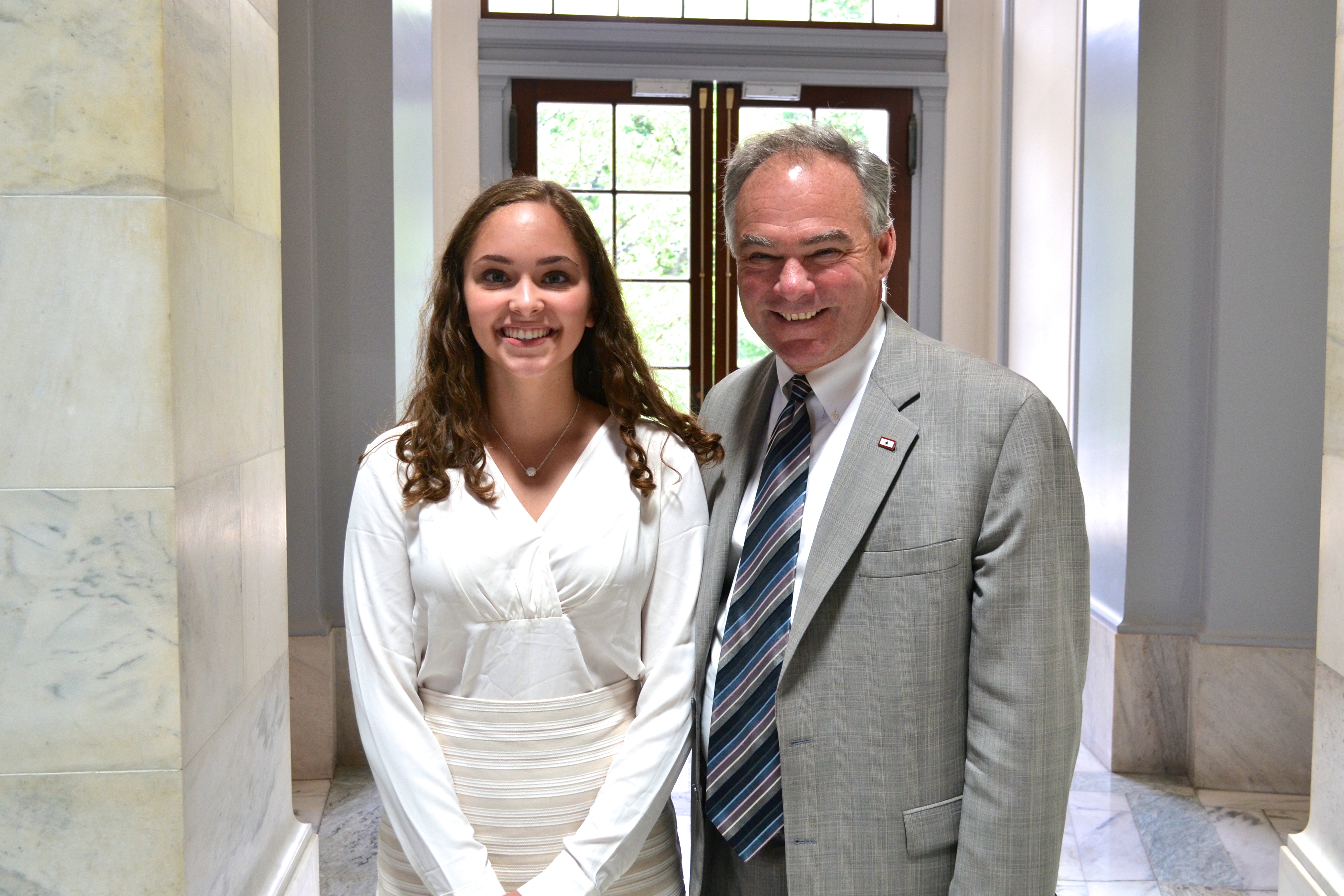
Monica: One of my duties as an intern for Senator Kaine was to help the press assistant record articles about Senator Kaine’s vetting process for the vice presidential nomination. As media outlets began to capitalize on speculation surrounding Secretary Clinton’s decision, every day I would receive an increasing number of press clips to record, with titles like “Will Tim Kaine Be Clinton’s VP?” or “Ten Things You Need to Know about Tim Kaine.” I noticed the mounting anticipation not only in the number of articles that came pouring into my inbox, but also in the buzz that enlivened Russell 231. In between the meetings with constituents, the letter writing, the committee hearings, everyone was wondering: would Senator Kaine be the nominee? On Friday, July 22nd, we finally received the answer we had been hoping for. Glued to the TV screen, I watched as this very surreal story began to unfold.
Samuel: It was very difficult to come to work after the Orlando shootings took place in mid-June. I felt sick that tragedy like this was the new normal and I didn’t want to sit idly by without something getting done. It turns out that I didn’t have to wait very long. Several Democratic House members – including my Congressman John Yarmuth – organized the sit-ins for gun control legislation soon after the shootings occurred. While my congressman and others were fighting on the House floor, I was in the office answering phone call after phone call. Whether they called in support or opposition, I was just excited that people cared strongly and wanted to respond. So many people disapprove of government and Congress in particular, but we can’t let this lead to indifference. We need to encourage people to be engaged in the political process. The other interns and I chose to stay late on some days so that we could continue taking calls. I could tell we were part of something historic.
What advice would you give to other students about getting an internship on Capitol Hill?
Ethan: Most Congressional offices want interns who are willing to learn and understand that all functions in the office are valuable. Highlighting previous experience you have working as part of a team and contributing to a goal, even if you weren’t the one taking the lead, is a great addition to your application!
Monica: Don’t be afraid to network! The Hill is all about building personal relationships. Getting a recommendation from someone with a connection in the senator’s office could mean your resume gets pulled from the bottom of the pile. Also make sure to keep in touch with the office after your internship. Many of Senator Kaine’s legislative assistants and staffers were once interns, and they were able to get jobs by updating the office regularly.
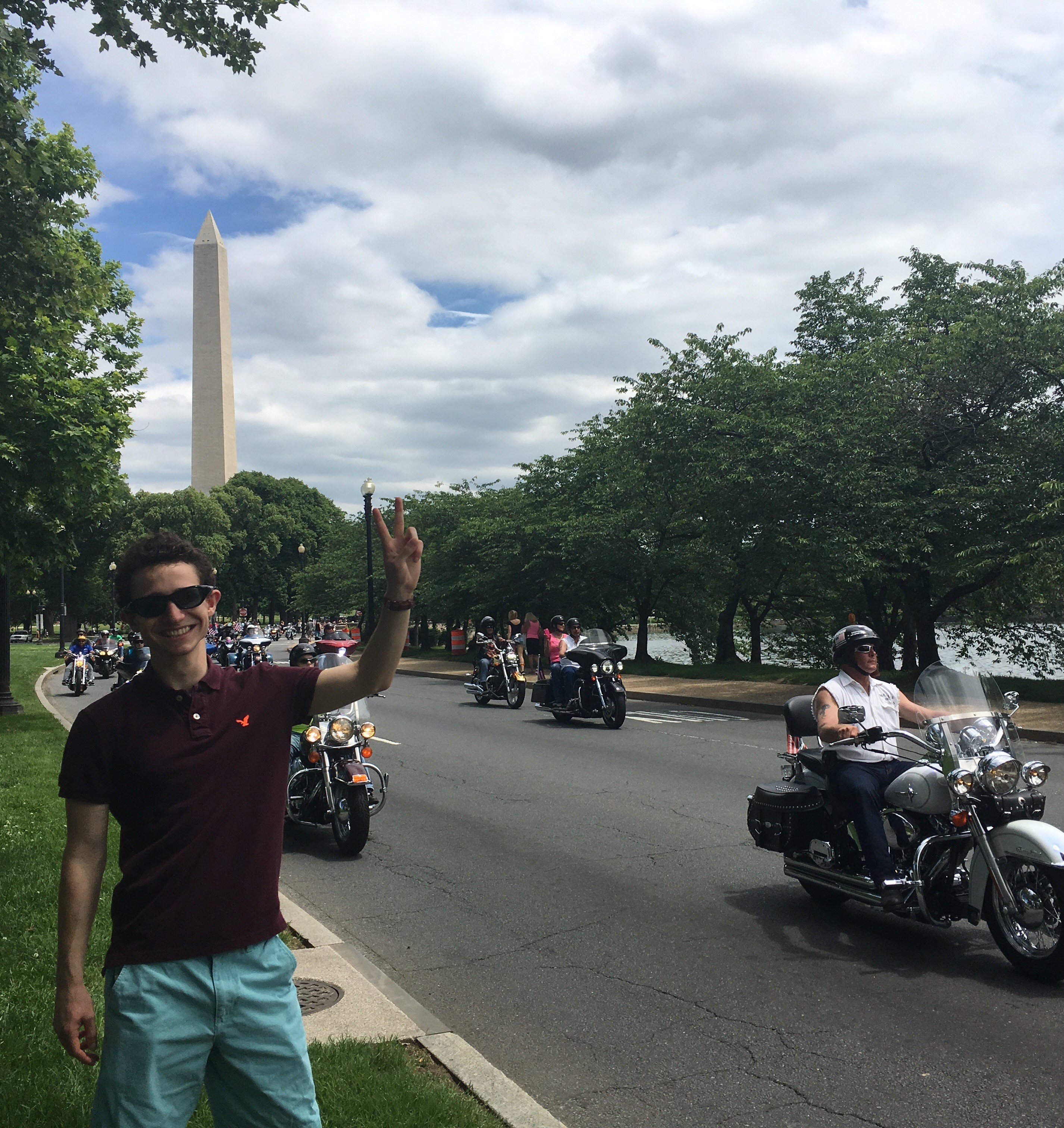
Samuel: Before sending in your resume, make sure it is updated and read through it for spelling and grammar. Let someone with fresh eyes read through it as well. When considering which office to apply to, it definitely helps to be from that person’s district or state. If you are intent on avoiding your district or state, it is especially important to have an answer to why the district or state of your new selection is special to you. I would also recommend looking at internships with committees. As a candidate, you should prepare for interview questions about your strengths and weaknesses, what public service means to you, what you would like to get out of the internship, why the congressperson’s district or state is special to you, and what political issues you are passionate about. It may sound odd, but I recommend smiling through the phone interview because it makes you sound happier and more passionate (don’t do this for in-person interviews as it will look very weird). What makes Capitol Hill internship interviews special is that talking politics is fair game. I suggest being frank while at the same time considering the valid arguments and counterarguments. To secure the internship, you do not necessarily have to agree with your congressman or congresswoman, but it is important to know where he or she stands and the work he or she has already done. Do your research on the congressperson’s website. And remember to always ask at least one question of the interviewer.
Photos courtesy of Monica Marciano and Sam Miller
